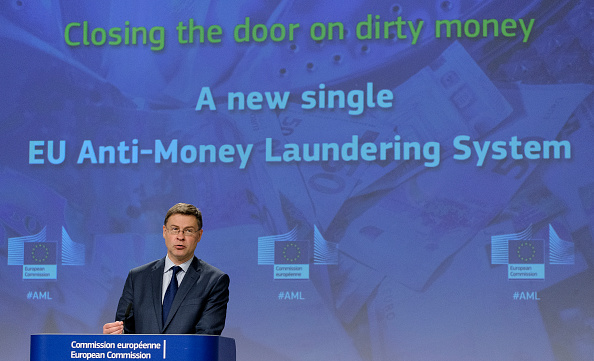The European Union must impose a wealth tax to finance climate transition – the move to a low-carbon, more resource-efficient and sustainable economy – says Paul Magnette, leader of Belgium’s Socialist Party.
“If we want to finance the climate transition, we need money. This money will come from the multinationals and the great fortunes. There really is no other solution,” argued Magnette, whose party commands a strong lead in Belgium’s French-speaking Wallonia.
With discussions now beginning about the EU’s next seven-year budget, both the European Parliament’s Greens/EFA and Socialists & Democrats groups have also argued for a wealth tax.
In September, the Greens/EFA published a report observing, “Spain took the lead in Europe” by introducing a wealth tax at the end of 2022, asking: “What if all EU countries were to introduce that same tax?”
The EP accordingly considered an amendment about introducing such a tax to provide another EU resource on February 27.
Yet, while 140 MEPs voted for the proposal, 463 were against.
The idea’s backers say a wealth tax could bring in much more than the EU’s current budget, which is between €160 billion and €180 billion a year.
The EU could instead raise €286.5 billion yearly with a 2 per cent tax on European citizens with individual net wealth of more than €4.6 million, 3 per cent on that above €45.7 million and 5 per cent those with more than €913 million, OxFam policy advisor Julien Desiderio said on April 11.
For its advocates, wealth taxes are a fair way of taxing the very rich.
“Billionaires are very good at structuring their wealth so that it generates little [sometimes zero] taxable income. This is why taxing their income is not enough,” said Berkeley economist Gabriel Zucman, a leading proponent of wealth taxes.
For opponents, wealth taxes introduce double taxation, which they say is unfair: if you pay tax on your wages or personal business income, then you have paid once already, they argue.
Economists argue wealth taxes also can distort saving behaviour: if you know your savings will be taxed, you have an incentive to spend your money now, many say.
Another argument is that a wealth tax “will only hasten the exodus of wealthy individuals”, according to Richard Epstein, a libertarian law professor at New York University.
Magnette’s proposals are significant given Belgium will hold its next national elections on June 9, the same day as polls for the European Parliament.
Ideas such as wealth taxes are generally better-received on better on the French-speaking side of Belgium.
Magnette’s Francophone Socialist Party, commanding the support of 25.4 per cent in Wallonia in an April 18 Kantar poll, has never trailed its Walloon rivals since the 2019 national elections.
This could pose some problems for Belgium, since his potential partners on the Flemish-speaking side are increasingly moving to the hard-right.
The same poll showed Vlaams Belang (Flemish Interest) with 26 per cent in Flanders, far ahead of Prime Minister Alexander De Croo’s Open Flemish Liberals and Democrats on 10.4 per cent.
”Magnette is unsuitable to become prime minister,” claimed Bart De Wever, who leads the Flemish nationalist New Flemish Alliance (N-VA), placed second in the poll with 20.9 per cent.
The Flemish PVDA (Workers’ Party of Belgium) has proposed a “millionaire’s tax” but the party commanded just 12.2 per cent.
Magette has sparked debate before.
After almost torpedoing the EU-Canada trade deal in 2016, in 2022 he argued for abolishing internet shopping in Belgium, saying: “Let Belgium become a country without e-commerce.”





